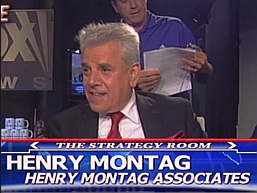

All too often life changes and we have no choice but to go along with those changes be they death, divorce or retirement. However sometimes we don’t change the required administrative paperwork that goes along with our life changes and all of a sudden we find that our intent isn’t being met. Perfect example is when a couple divorces but one spouse forgets to change the beneficiary designation on a life iinsurance contract or on their retirement beneficiary designation. Even though the individual’s intent was for his new wife or children to receive the proceeds of his life insurance or retirement plan, and even though those wishes were clearly spelled out in his new will, those wishes will not be met and the former wife will receive them if the proper forms were not previously signed.
Another time goals and objectives change is when tax laws change. For example as of Jan 1 of 2013 the estate tax exemption was raised just above $5 million dollars. That meant that individuals with less than $5 mil now no longer had to be concerned about paying estate taxes at their death. People often arranged to pay for those estate taxes by purchasing a life insurance policy and placing it in an irrevocable life insurance trust. Now that the estate tax liability is no longer there for many people they should consider whether or not they still need to keep as much life insurance in their life insurance trusts as was needed prior to Jan 1 2013.
Doing so might also be a way to rescue an interest-sensitive non-guaranteed life insurance contract that may have otherwise expired prematurely because of the sustained low interest rate environment we’ve experienced over the last two decades. If you own a Life Insurance contract or you are a beneficiary or trustee you have a duty or obligation to review your current life Insurance contract as you would any other asset. Recently a 71 year old prospective client with a $2 million dollar life Insurance contract found himself in just that type of a situation as he was recently advised that his life Insurance contract, based on current interest rates would expire by the time he was 83 just 12 years away. Since he was relatively healthy we were able to apply for a new life insurance contract for a lesser amount of death benefit but with a guarantee that the money would be there for the rest of his life. Needless to say he and his family were very happy that they would receive a lesser but guaranteed tax-free death benefit.
Sometimes an individual may find the need for the life insurance is no longer there and may wish to turn those dollars into a stream of tax-free guaranteed income for the rest of their lives. An other alternative to just stop paying a premium if one no longer wishes to continue or is no longer able to continue to pay their premium is what’s known as a “Life Settlement” meaning you can actually sell your life insurance contract to an Investment fund similar to the way you would sell any other asset you own.
Since there are currently new benefits available today that weren’t available just 2 -3 years ago many individuals are looking into ways to enhance their current benefits whether they’re in or out of a trust. One such example is the chronic care rider that allows an individual to withdraw some tax-free dollars from the death benefit to pay for some qualifying long term care costs. Some individuals may now wish to take advantage of rules from the recently enacted Pension Protection Act that allows them to direct transfer dollars from the taxable gains of a tax-deferred annuity into an annuity to pay for a portion of an individual’s long-term care costs or for all or part of their long term care Insurance premiums.
Some individuals may find themselves with more retirement assets than they may need for themselves and would like to leave their IRA principal intact for a grown child or grandchild. They may consider setting up an IRA Trust. Doing so would allow the assets in the IRA to continue to grow tax deferred and accumulate for many years without having to take a distribution. This is known as a Stretch IRA and could continue to provide these tax deferred benefits until the grandchild is in their 20’s or 30’s, a very smart and effective way to defer taxes on assets and actually skip a generation of taxes.
Recognizing that as life changes be it personal or business it’s important to adapt your financial and legal goals to coincide with your current goals and objectives.
————————————————————————————————
Henry Montag, partner in Financial Forums Inc., is an Independent Certified Financial Planner, in practice since 1976 with offices on Long Island and NYC. Henry has lectured extensively on the subject of the proper utilization of financial products to protect and preserve assets, for individuals and business owners to organizations such as the New York State Bar Association, the New York State Society of CPAs, and various regional and local banks.
Over the years he has developed an understanding of the overall coordination of a client’s assets, their goals as well as the features and benefits currently available in the financial marketplace today. He has been quoted in The Wall Street Journal, Investor’s Business Daily, Newsday, Long Island Business News, etc. He has appeared as a guest on Fox News, News 12, FIOS T.V. as well as many radio financial talk shows.
HENRY MONTAG CFP
516 695-4662
henry@financialforumsinc.com
WWW.FINANCIALFORUMSINC.COM

Leave a Reply